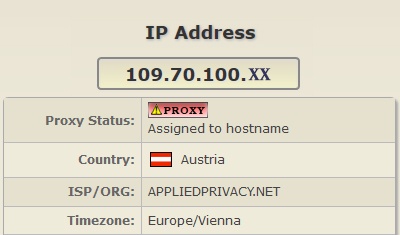In today’s interconnected world, the ability to determine a user’s geographical location from their IP address has become a valuable tool for businesses and individuals alike. Whether it’s for enhancing user experience, bolstering security measures, or simply for statistical analysis, the process of extracting location data from an IP address is a powerful capability.
The Basics: Getting Location by IP
Getting Location by IP refers to the process of identifying the physical location of a device or user based on their Internet Protocol (IP) address. An IP address is a unique numerical label assigned to each device connected to a computer network that uses the Internet Protocol for communication.
While IP addresses themselves don’t inherently carry location information, they can be used in combination with various techniques and databases to determine where a user or device is located. These techniques primarily rely on databases that associate IP addresses with geographic locations, such as countries, regions, cities, or even specific coordinates.
The Role of Location from IP APIs
To efficiently retrieve location data from an IP address, many rely on Location from IP APIs (Application Programming Interfaces). These APIs provide a structured and user-friendly way to access location information associated with an IP address.
The location from IP APIs typically offers a wide range of data, including but not limited to:
- Country: The country where the IP address is registered.
- Region/State: Information about the specific region or state within a country.
- City: Details regarding the city where the IP address is located.
- Latitude and Longitude: Precise geographic coordinates, enabling pinpoint accuracy.
- Timezone: The timezone in which the IP address is situated.
- Internet Service Provider (ISP): The company providing internet services to the IP address.
These APIs are invaluable for a multitude of applications. Let’s explore some of the key areas where the ability to get location from an IP address plays a crucial role.
Enhancing User Experience
One of the primary use cases for location data obtained from IP addresses is enhancing user experience. When a website or app knows the approximate location of a user, it can customize content to cater to their specific needs.
For instance, an e-commerce platform can display products and offers tailored to a user’s region, a weather website can provide local weather forecasts, and a news site can prioritize news stories relevant to the user’s location. This personalization not only improves user engagement but also increases the chances of conversion and customer satisfaction.
Strengthening Security Measures
Another vital application of getting location by IP is in security measures. By identifying the location associated with an incoming IP address, organizations can detect suspicious or unauthorized access attempts. For example, if a user typically logs in from New York but suddenly attempts to log in from a different country, it may trigger an alert for a potential security breach.
Additionally, location data can be used to implement geofencing, restricting access to certain services or content based on the user’s physical location. This is particularly valuable for content licensing and compliance with regional regulations.
Targeted Marketing and Analytics
Businesses can leverage IP-to-location data for targeted marketing campaigns and analytics. Knowing the locations of their website visitors or app users allows companies to tailor their marketing efforts to specific regions.
Furthermore, location data can be a goldmine for analytics. It can provide insights into customer demographics, regional trends, and the effectiveness of marketing campaigns in different areas. This information empowers businesses to make data-driven decisions and optimize their strategies.
IP Address by Location
On the flip side, there are scenarios where it’s essential to determine the IP address by location. This is particularly relevant in cases of cybercrime investigations or tracing the source of malicious activities. Law enforcement agencies and cybersecurity experts often need to pinpoint the IP addresses associated with specific geographical locations to track down wrongdoers.
It’s important to note that obtaining IP addresses by location can be a more complex task, involving cooperation with internet service providers and legal procedures.
Conclusion
In the digital age, the ability to get location by IP is a powerful tool with far-reaching applications. The location from IP APIs have streamlined the process, making it accessible and convenient for businesses and individuals to leverage location data for various purposes, from enhancing user experience and bolstering security measures to targeted marketing and analytics.
The reciprocal concept of determining IP addresses by location is equally significant in the realm of cybersecurity and criminal investigations.
In a world where information is power, the ability to extract location data from IP addresses and vice versa empowers us to make informed decisions, enhance security, and create personalized experiences that resonate with users on a global scale. As technology continues to evolve, so too will our capabilities in harnessing the potential of IP address location data.


No comments yet